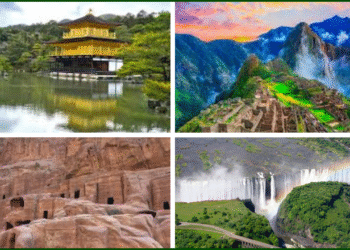at 2,636 feet above sea level in the Western Ghats, Matheran has long been a cherished retreat for those seeking respite from the chaos of Mumbai’s urban sprawl. Known for its serene landscapes, vehicle-free pathways, and colonial charm, this petite hill station has captivated nature lovers and adventure enthusiasts alike. However, as of March 19, 2025, Matheran’s tranquil trails and scenic vistas remain off-limits to visitors due to an indefinite strike led by the Matheran Paryatan Vachav Sangharsh Samiti (MPVSS). The closure, which began on March 18, stems from growing frustration over fraudulent practices targeting tourists, leaving travelers to rethink their plans for this idyllic getaway.
Why Matheran is Closed
The MPVSS, a coalition of local residents, traders, hoteliers, and e-rickshaw operators, initiated the strike to protest rampant tourist scams, particularly by horse operators and touts at the Dasturi Naka entry point. Reports of overcharging—sometimes Rs 500 to Rs 1,000 for a mere 2-kilometer ride—and misleading tactics have tarnished Matheran’s reputation, driving down visitor numbers. Despite formal complaints lodged with the revenue department, municipal council, forest department, and police on February 27, the lack of action prompted this drastic step. The group vows to keep Matheran shuttered until authorities implement stricter regulations to protect tourists and restore the hill station’s allure.
What Makes Matheran Special
When accessible, Matheran is a haven of natural beauty and peaceful exploration. As India’s smallest hill station, it stands out for its eco-friendly ethos—motor vehicles are banned, preserving its pristine air and quiet charm. Visitors typically traverse its red laterite paths on foot, horseback, or via hand-pulled rickshaws, immersing themselves in a landscape dotted with lush forests, cascading waterfalls, and breathtaking viewpoints.
Top Things to Do in Matheran (When It Reopens)
- Echo Point: Shout into the void and hear your voice bounce back amidst stunning valley views—a perfect blend of fun and scenery.
- Porcupine Point: Catch a mesmerizing sunset at this uniquely shaped lookout, named for its resemblance to the spiky creature.
- Charlotte Lake: A serene spot for picnics or birdwatching, this forest-ringed lake also hosts the tranquil Pisarnath Temple.
- Rock Climbing: Thrill-seekers can scale iconic spots like Shivaji’s Ladder or Louisa Point, blending adventure with panoramic rewards.
- Neral-Matheran Toy Train: A nostalgic ride through winding hills and verdant valleys—though currently suspended due to the strike.
How to Reach Matheran
When the hill station reopens, here’s how you can get there:
- By Road: From Mumbai (90 km, ~2 hours), take the Mumbai-Pune Expressway to Neral, then proceed to Dasturi Naka. From Pune (120 km, ~3 hours), follow a similar route via the expressway. Private vehicles stop at Dasturi, where you switch to walking, horseback, or rickshaws.
- By Rail: The iconic Neral-Matheran Toy Train departs from Neral Junction, connected to Mumbai and Pune by local trains. The scenic journey is a highlight, though currently on hold.
- By Foot: Adventurous souls can trek from Neral to Matheran, a 2.5–3-hour climb offering unparalleled views.
The Road Ahead
The indefinite closure has left tourists like Nitin Pagar from Ghatkopar disappointed. “We arrived expecting a peaceful escape, but everything was shut. It’s a shame, especially with summer vacations starting,” he said. Local voices, including former municipal president Manoj Khedkar, emphasize that the strike aims to protect Matheran’s legacy, not deter visitors long-term. Meanwhile, horse operators argue their livelihood depends on tourism, blaming negative social media for the downturn.
Authorities have scheduled a stakeholder meeting to address the crisis, but no resolution has been announced as of today, March 19, 2025, at 1:44 PM PDT. For now, Matheran’s misty trails and panoramic points remain a memory, urging travelers to monitor updates before planning a visit. Until the gates reopen, this beloved hill station stands as a poignant reminder of the delicate balance between tourism and trust.


















































